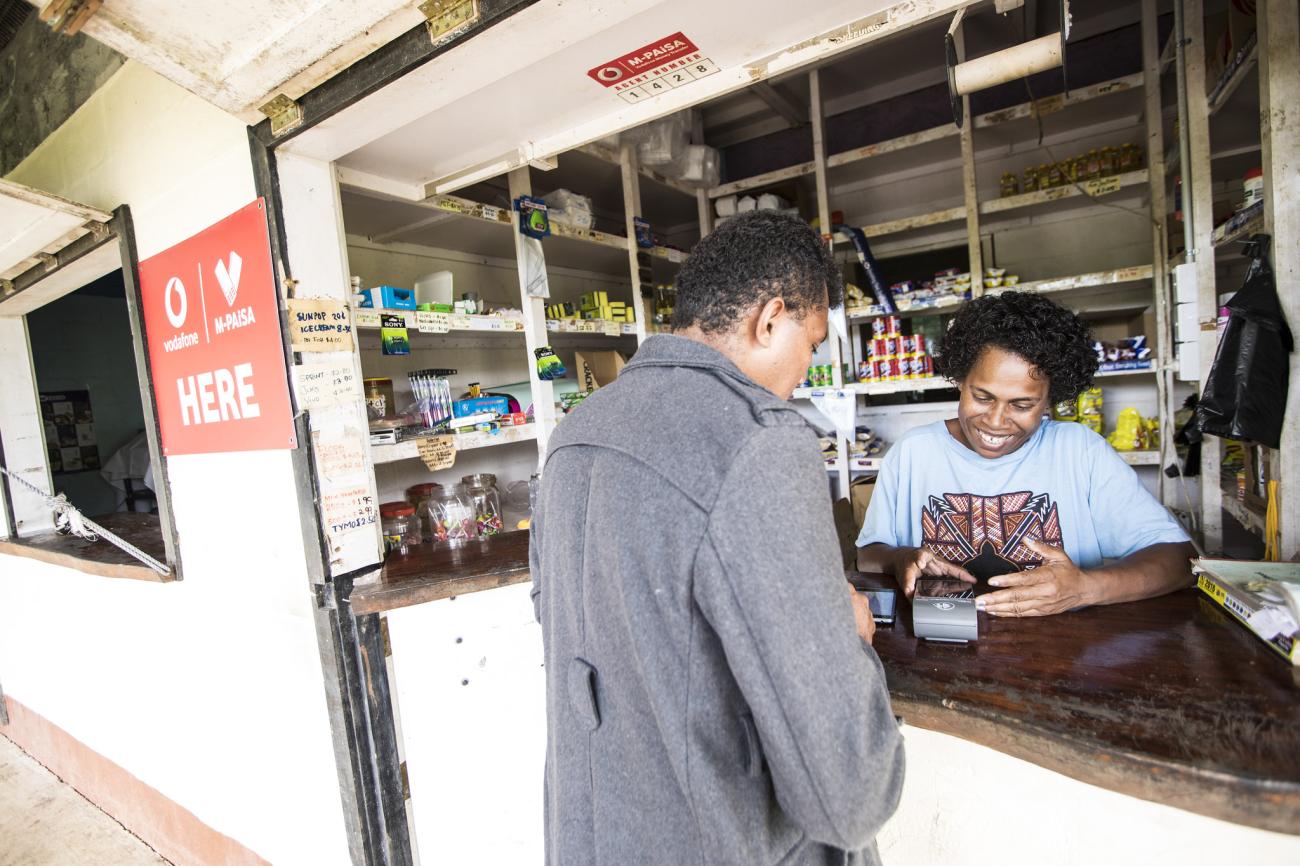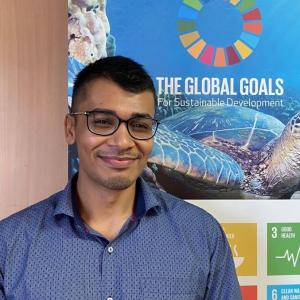Empowering the Vulnerable: Experts Call for Equitable Access to Climate and Disaster Risk Insurance

The nascent climate and disaster risk finance and insurance (CDRFI) space in the Pacific is buzzing with activity.
The financial impacts of extreme weather events in the region are driving the development of new innovative products and the formulation of national CDRFI strategies.
At this early stage, there is a call for ‘fit-for-purpose’ DRF instruments that are tailored to the Pacific’s unique set of risks, challenges and opportunities.
Not accounting for the needs of women and other vulnerable groups in these activities would represent a lost opportunity to make a meaningful impact.
The work of Programmes – such as the UN Capital Development Fund’s (UNCDF) Pacific Insurance and Climate Adaptation Programme (PICAP), which is a joint programme with the UN Development Programme (UNDP), the UN University Institute for Environment and Human Security (UNU-EHS) -- need to be gender equitable and inclusive of the most vulnerable and marginalized.
This was the call from a panel of gender experts during a virtual learning event on ‘Gender Equality and Social Inclusion (GESI) for Equal Access to Climate and Disaster Risk Finance in the Pacific’ on Thursday, 5 May 2022.
PICAP has developed the region’s first parametric micro-insurance product, with over 1,300 households, with predominantly small holder farmers, fishers, market vendors and social welfare recipients covered so far.
The Programme is supported by the Governments of Australia, New Zealand and Luxembourg’s Climate and Energy Fund. Additionally, the ‘Developing Climate Disaster Risk Financing Framework and Parametric Insurance in Fiji’ project is funded by the India-UN Development Partnership Fund administered by the UN Office for South-South Cooperation.
Organized by UNCDF and the UNDP Pacific Office in Fiji, the learning event was held on the eve of the launch of PICAP’s GESI strategy.
The panelists included:
- Merewalesi Laveti – UNDP Pacific Office’s Gender Focal Point, Monitoring and Evaluation and Country Coordination Analyst
- Michelle Reddy – PICAP Technical Advisory Committee member
- Neiua Bulou – shop owner, farmer and holder of Fiji’s first parametric microinsurance cover
- Losana Kumar – PICAP Project Officer, Cane Farmers’ Cooperative Savings and Loans Association Limited (CCSLA)
- Amit Kumar Garg – Digital Payments Expert at UNCDF
- Angeline Fatiaki – Senior Programme Manager, Gender Quality Programmes at the Australian Department of Foreign Affairs and Trade in Fiji
- The session was moderated by UNCDF Communications Assistant, Veima Bower
Mainstreaming GESI
Merewalesi Laveti opened the discussion with a strong call for development programmes to ensure gender equality and social inclusion were vital parts of their work, not simply an afterthought.
She stressed that vulnerable communities need to be empowered if the world is to achieve the 2030 Sustainable Development Agenda.
She commended PICAP for tackling structural challenges that hamper women’s access to CDRFI instruments and financial services more broadly through the GESI strategy.
“It’s important to build an institutional mechanism for gender mainstreaming, such as the UNDP Pacific’s Gender Equality Seal,” Ms. Laveti added.
Inclusive Market Development Approach
It is crucial for the design and eligibility criteria of CDRFI products to be viewed through a gender equality and social inclusion lens.
If not, products that are designed to uplift communities would leave behind a crucial segment and further exacerbate their disadvantaged position, said Michelle Reddy.
“I’m so glad that PICAP adopts an inclusive market development approach, which means they make sure those vulnerable communities are included and have a say in the development of climate and disaster risk financial products,” she added.
Ms. Reddy, the former Fund Manager of the Fiji Women’s Fund, advises PICAP on funding and the design and implementation of proposals to ensure they are gender equitable and socially inclusive.
While providing an overview, she said the high rates of gender-based violence in the region and low participation of women in the formal workforce made accessing financial instruments difficult.
People living with disabilities and gender non-conforming communities are also disproportionately affected by extreme weather events because of the existing inequalities they face, Ms. Reddy added.
“The GESI strategy provides partners, funders and the PICAP team the opportunity to monitor, evaluate and hold ourselves accountable as well as learn along the process about how we can be more inclusive and gender equitable.”
Support for Small Businesses
Neiua Bulou, a shop owner, farmer and holder of a parametric micro-insurance cover, lives in a flood prone area in Vitogo in Fiji’s second largest city, Lautoka.
She shared what her family experiences when water inundates their settlement and damages their property during heavy rain, and the difficulties they face trying to re-build.
“During that time [flash flooding], we face a lot of problems. Everything is in a mess, and we don’t know where to start [again from]. In terms of assistance, government officials do come around, but it takes time,” she said.
Ms. Bulou signed up to the parametric micro-insurance scheme through UNCDF aggregator partner, the Cane Farmers’ Cooperative Savings and Loans Association Limited (CCSLA).
The product is designed to help micro-enterprise owners like Ms. Bulou build back better and faster with a quick injection of funds to cater for their immediate financial needs following an extreme weather event.
“We are so happy that we are secure. We are confident that if something happens the help is there, and it takes two or three days to reach us,” she said.
Cultural Barriers
PICAP has brought together a range of aggregator and agri-agency partners to strengthen its reach and impact, especially in difficult to access places.
One partner is CCSLA, a cane farmer cooperative in the country’s Western Division providing a range of savings and investment products for its members.
Losana Kumar, CCSLA Project Officer for PICAP, has been leading efforts to raise awareness about the parametric micro-insurance product in the cane farming regions of Lautoka and Vanua Levu, Fiji’s second largest island.
Ms. Kumar says the development of CDRFI instruments and strategies must consider the cultural barriers that hold Pacific women back from accessing them.
Although women are seen as the backbone of the rural communities CCSLA visited, they tend to be the most affected during extreme weather events due to the sheer increase in workloads.
“A lot of women were interested, however they had to take permission from their husbands before signing up for the Programme,” Ms. Kumar said.
The GESI Strategy
Participants got a first look at PICAP’s GESI Strategy, which includes the following key objectives:
- To achieve at least 50 percent gender coverage in all outreach efforts
- Reduce accessibility barriers so that CDRFI products meet the needs of women, marginalized and the most vulnerable
- A six step GESI assessment tool that is applied to review all partner projects
- A robust monitoring mechanism to track the progress and report on GESI indicators
Amit Kumar Garg led the discussion on the strategy, for which he is the co-author with Rayane Chbeir, former Junior Professional Consultant with PICAP.
He cited a UNCDF demand study conducted in Fiji and Vanuatu, in which 94 percent of woman respondents had experienced economic losses during extreme weather events, to stress the importance of a GESI Strategy.
“Majority of the losses were immediate and near-term income loss. Similarly, the measures taken for recovery also exacerbated income loss because women were found to be selling assets, using up savings, or taking loans,” Mr. Garg said.
Gender equality, a driver of growth, development and prosperity
The final speaker, Angeline Fatiaki, stressed that gender inequality undermined global prosperity, stability, and security. She welcomed PICAP’s GESI Strategy as an important gender-responsive lens.
Ms. Fatiaki said it was crucial to address barriers and identify opportunities to enhance women’s health, economic empowerment, and safety.
“Australia continues to work with partners in the Pacific to address climate change and strengthen socio-inclusive gender responsive sustainable development in our region,” she concluded.
The panelists addressed the following questions posed by the audience (60-70 people attended the webinar):
- What are two to three key areas that Programmes working on the financial empowerment and inclusion of women need to be mindful of?
- What has been some key challenges in engaging women to be involved in the Pacific Insurance and Climate Adaptation Programme?
You can watch the full event here: https://www.youtube.com/watch?v=PAfignqadQU
Written by






